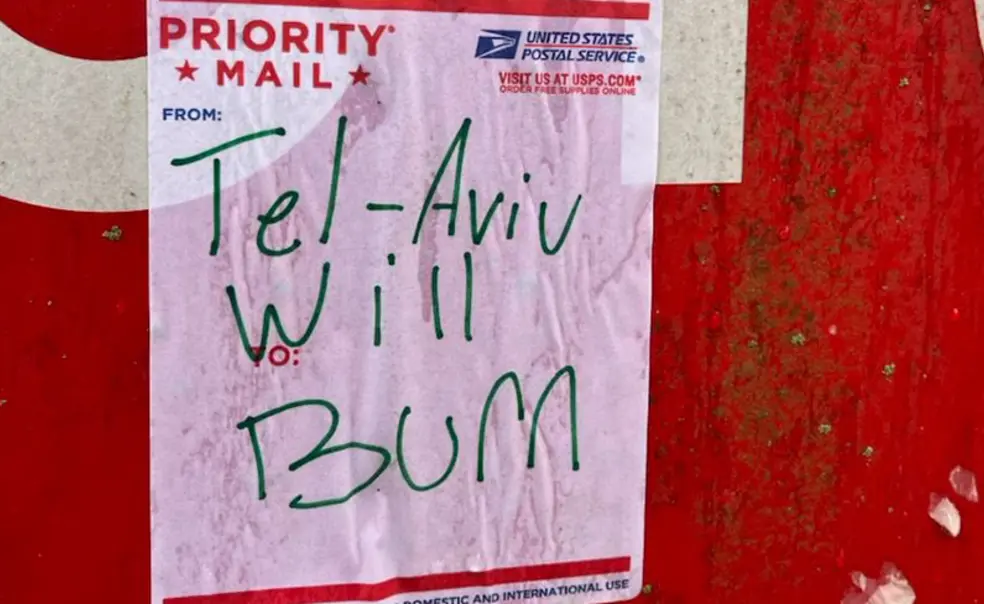Princeton Opens Bias Investigations Into Anti-Palestinian, Anti-Israel Flyers
An administrator urged community members to report any similar incidents
Stickers and flyers with hate messages have been found on campus in recent weeks, prompting the University to open investigations and remind the campus community of its role in addressing harassment.
Princeton Public Safety opened an investigation into a bias incident against Palestinians in early September when about 30 flyers printed with the phrases “Nuke Gaza” and “Kill Roaches” were found on a walkway near Spelman Hall.
Students found these posters on campus outside Spellman College earlier today. These are the people who are against divestment from Israeli apartheid, free to spread deeply racist, violent, and dehumanizing calls for genocide. pic.twitter.com/3fEh9QHKaY
— Princeton Israeli Apartheid Divest (@PtonDivestNow) September 6, 2024
The New Jersey chapter of the Council on American-Islamic Relations (CAIR-NJ) published a statement condemning the flyers.
“Anti-Palestinian racism is a direct reaction to the growing movement nationwide, and particularly on college campuses, rejecting the far-right Israeli government’s genocide in Gaza,” CAIR-NJ Executive Director Selaedin Maksut said in the statement.
Several weeks later, on Sept. 28, multiple stickers were found scattered across campus on stop signs and bulletin boards with anti-Israel messages, including “Death to ‘Israel’” and “Tel-Aviv [sic] will Burn.”
One featured a sketch of a rifle with the text “to Free Palestine Armed struggle + popular liberation war - PFLP.” The PFLP, or Popular Front for the Liberation of Palestine, is part of the Palestine Liberation Organization (PLO) and has been designated as a terrorist group by multiple countries, including the United States and Canada.
As President of Princeton Tigers for Israel, I am deeply disgusted and disturbed by such violent & antisemitic signs as:
- “Tel-Aviv will burn”
- “to free Palestine: Armed struggle +…PFLP” (terrorist organization) followed by a rifle (Hezbollah’s logo)
- “We support Hamas”… pic.twitter.com/loMYfZDqFo
— Maximillian Meyer (@MaxMeyerNY) September 30, 2024
The stickers were from the United States Postal Service intended for use as mailing labels.
Maximillian Meyer ’27, president of Tigers for Israel, a pro-Israel club, said he was “dismayed and disgusted to see signs that call for the genocide of the Jewish people — call for the death of a nation in which half of the world's Jewish people live.”
Meyer said that he and a few other students reported the stickers, and they were taken down Sept. 30.
University spokesperson Jennifer Morrill confirmed that the stickers were being investigated by Public Safety as a potential bias or harassment incident.
Michelle Minter, vice provost for institutional equity and diversity, gave a presentation at the Sept. 30 Council of the Princeton University Community (CPUC) meeting about Title VI protections on campus under the Civil Rights Act. Title VI prohibits discrimination on the basis of race, ethnicity, religion, or national origin. In her presentation, Minter specifically highlighted protections mentioned in a May 2024 “Dear Colleague Letter” from the Department of Education’s Office of Civil Rights. The letter specifically states that Title VI protects Jewish, Muslim, Israeli, and Palestinian students.
Minter explained that harassment allegations need to meet certain standards, including that behavior or speech that harasses someone has to be directed at a specific person based on a protected characteristic. But allegations of a hostile environment, Minter noted, are subject to a broader standard. Some activities that can contribute to a “hostile environment” are also constitutionally protected free speech, including flyers, social media posts, and protests.
In a statement to PAW, Minter wrote that Princeton “deplores all hateful speech,” and that “anonymous, offensive speech — particularly that which includes rhetorical threats of violence — is especially unwelcome.”
More information about the University’s harassment policies can be found here.












1 Response
Thomas Tonon *71
1 Year AgoProtections Cover Race, Color, National Origin Only
Title VI of the 1964 Civil Rights Act does not prohibit discrimination based on “race, ethnicity, religion, or national origin,” as stated. It prohibits discrimination based only on race, color, or national origin. The Department of Education is incorrect to state that Muslims and Palestinians are protected, unless the discrimination is based on race, color, or national origin.
However, because of Executive Order 13899 by Trump in 2019, Title VI was made to include antisemitism. There was opposition to this order because it conflates political criticism of Israel with antisemitism, potentially stifling free speech and advocacy for Palestinian rights, which was addressed by Congress before the order was finally worded. Interestingly, the order does not define Judaism as a race, color, or nationality. The definition of “antisemitism” used in the order was given by the International Holocaust Remembrance Alliance (IHRA).
Additionally, the Antisemitism Awareness Act, which was passed by the House of Representatives in May 2024, aims to broaden, enforce, and legislate even more prohibitions of antisemitism as a Title VI violation. All of this effort uses the IHRA definition of antisemitism, with intense pressure on Congress to enact it.